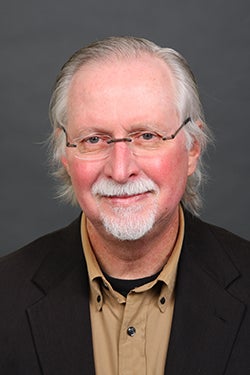Housing design needs in Oregon and Portugal share surprising similarities. Both enjoy Mediterranean climates. Both face similar zoning and land use policy challenges. And both strive to provide affordable housing in challenging economic times.
Noticing these connections, UO architecture Professor Michael Fifield proposed a collaborative, international project to determine how land-use classification, among other factors, could help guide housing solutions in both places. The research, and results, would need to factor in cultural, economic, and environmental concerns across cultures.

Above: Professor Michael Fifield
The Fulbright Commission offered Fifield a Fulbright Scholar Research Award to spend three months in Portugal documenting housing projects and helping to develop principles for more affordable, sustainable community design in both Portugal and the US.
Fifield will partner with the Gabinete de Apoio da Universidade Tecnica de Lisboa (GAPTEC) at the Universidade de Lisboa. GAPTEC comprises landscape architects and planners. As an architect, Fifield will contribute architectural expertise to the team along with his background in urban planning and housing.
Fifield chose Portugal for its many affordable and market-rate residential projects whose design principles can translate to the US.
“Documenting and researching these projects in Portugal will assist not only in the work I will be doing with GAPTEC,” his proposal stated, “but will be extremely useful in my work in the US [to develop] design principles for meaningful housing design.”
In Portugal, housing is a critical concern at the same time the country is experiencing a debt crisis, Fifield noted.
Fifield believes land use policies can play a significant role in helping solve the housing conundrum.
“Urban Growth Boundaries in Oregon and elsewhere are one means to address issues of land becoming scarcer. … However, there are questions of how to best utilize the land within the UGB and especially how to address housing costs and availability.
Fifield’s research in Portugal will also expand his work in “developing residential design principles that should address both environmental sustainability (through the use of higher density low-rise housing models) and sustainability of our communities (by providing options for a diversity of housing types in neighborhoods that will allow for aging in place).”
His Fulbright research will also involve learning the methodology used at GAPTEC in order to translate it to his work as director of the UO Housing Specialization Program.
Last year, Fifield and two colleagues were honored by the Association of Collegiate Schools of Architecture (ACSA) and the American Institute of Architects (AIA) for excellence in design education after they spearheaded the UO’s Housing Specialization Program. UO professors Peter Keyes and Rob Thallon shared the national honor with Fifield.
In 2015, the ACSA named Fifield a distinguished professor, only one of a select few nationwide. He is a certified planner (AICP) and was elevated to Fellowship (FAIA) in the AIA in 2011.
Other UO Department of Architecture faculty members who have received Fulbright Scholar Awards include G.Z. “Charlie” Brown, Virginia Cartwright, Nico Larco, John Reynolds, and Roxi Thoren.
